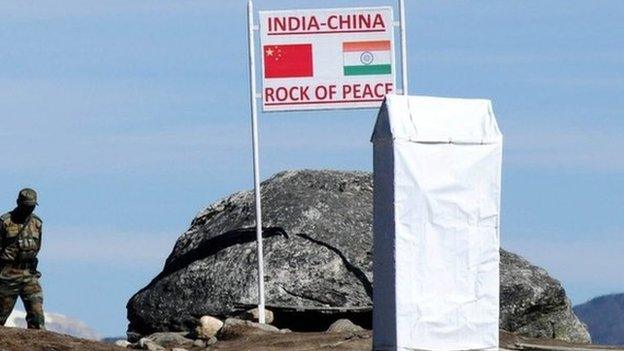India-China border dispute: Li and Modi seek resolution
- Published
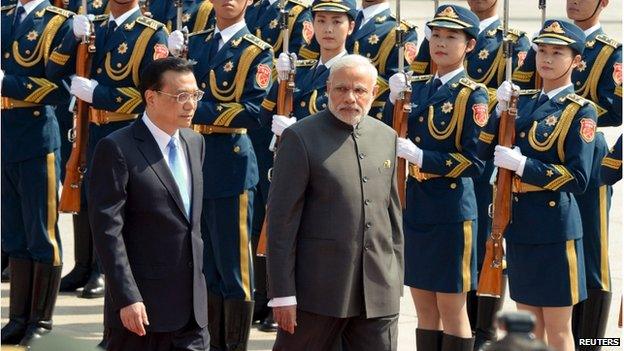
Mr Modi reviewed an honour guard at the Great Hall of the People before talks with Mr Li
Indian PM Narendra Modi and China's Premier Li Keqiang have agreed to seek a "fair resolution" to border disputes arising from a boundary disagreement.
Mr Modi and Mr Li held talks at the Great Hall of the People on the second day of his China tour.
The two also signed 24 agreements worth $10bn (£6.3bn) covering education, railways, and scientific research.
Mr Modi was hosted by President Xi Jinping in the city of Xian on Thursday at the start of his three-day trip.
He will visit Shanghai next, and meet members of the business community there.
Border talks
The border dispute dates back to 1914 when Britain, which controlled India at the time, signed an agreement with Tibet which made the McMahon Line (named after then foreign secretary of the British-run Government of India) the de-facto boundary. China has rejected it.
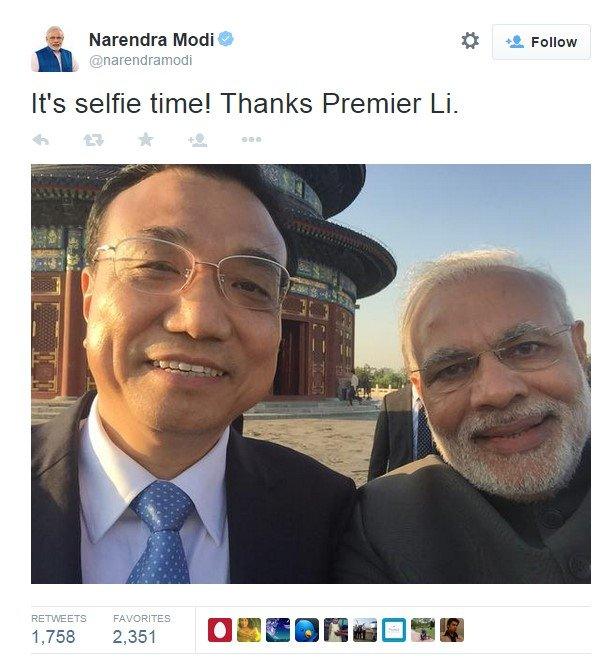
Both have claims on various parts of each other's territories, including an Indian-administered area known as Zangnan or South Tibet in China which is considered part of Arunachal Pradesh state in India.
Mr Modi said at a press conference that he and Mr Li had agreed to explore a "fair, reasonable and mutually acceptable resolution" to the issue.
At his speech at Tsinghua, external later he said: "The solution we choose should do more than settle the boundary question. It should do so in a manner that transforms our relationship and not cause new disruptions."
Mr Li said the two countries had "enough political wisdom to manage and control" differences. "Our common interests are far bigger than our differences," he added.
Also on Friday, Mr Modi published a picture of the two leaders on social media with the words "It's selfie time! Thanks Premier Li".
He published the picture on the Chinese Weibo microblog account, external he set up before his visit. It was forwarded more than 8,100 times with over 1,000 comments.
Many users, not used to China's leaders having a social media presence, reacted with delight.
On Twitter, external it has been retweeted more than 2,000 times.
On Facebook, external, the site's founder Mark Zuckerberg is among those who have "favourited" the picture. Access to Twitter and Facebook is blocked in China.

Analysis: Martin Patience, BBC News, Beijing
Both these Asian giants are talking up the need for greater co-operation following decades of mistrust. And the economy is one area they can agree upon.
But for all talk of co-operation, China and India remain fierce rivals.
A solution for a decades-long border dispute is nowhere in sight. And increasingly the two nations are vying for regional influence which could lead to a fresh round of tensions.

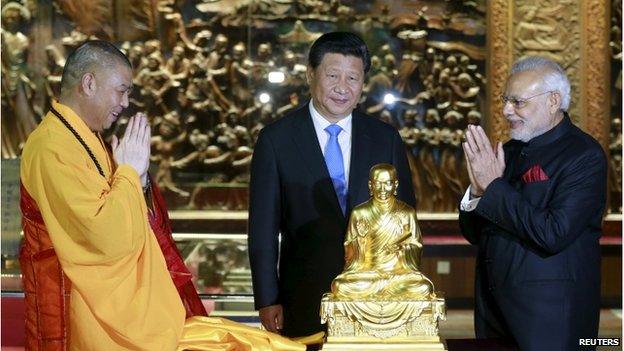
Mr Modi received a golden Buddha statue from an abbot at the Dacien temple in Xian on Thursday
Mr Modi also met Zhang Dejiang, the chairman of the National People's Congress standing committee, on Friday.
A statement by China's foreign affairs ministry reported Mr Xi as saying to Mr Modi that their two countries "must work together to enhance mutual trust, control our differences and problems to avoid them interfering with bilateral relations".
- Published14 May 2015
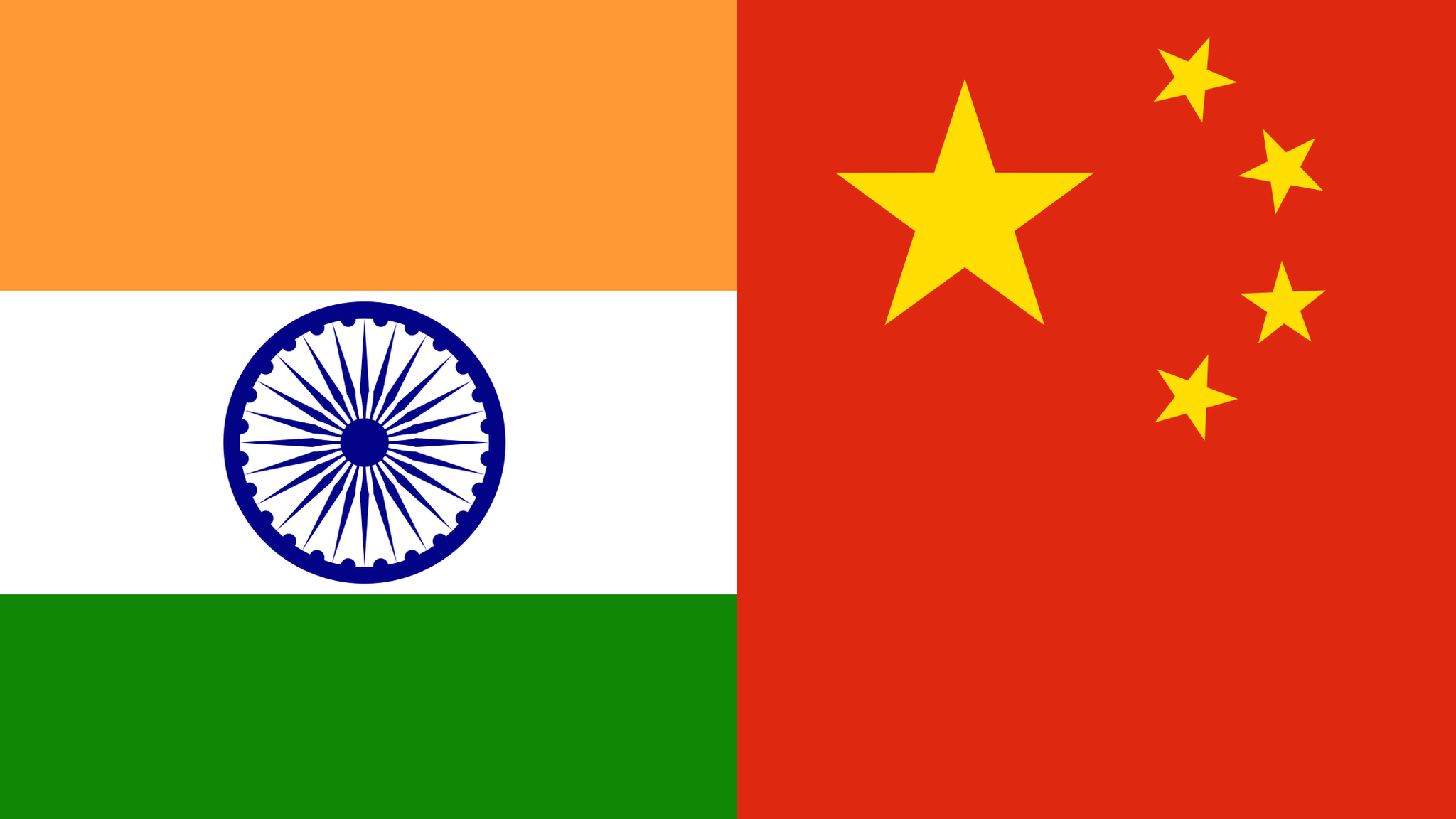
- Published14 May 2015
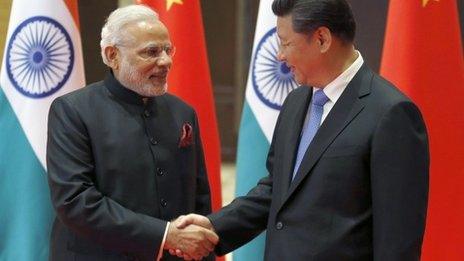
- Published4 May 2015
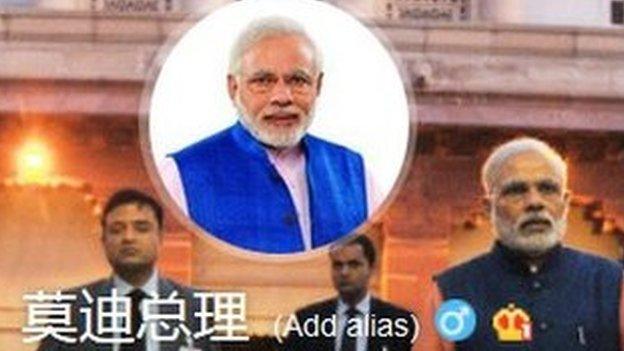
- Published14 May 2015
- Published14 May 2015
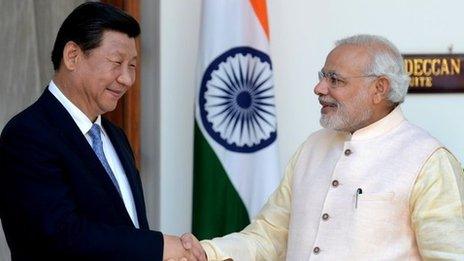
- Published23 March 2015
